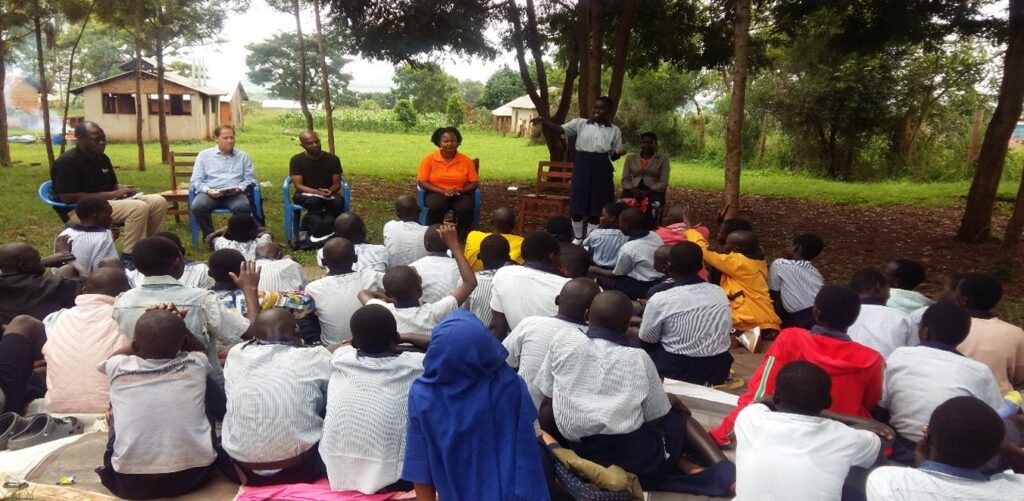
Improved Access to Sexual Reproductive Health and Rights (SRHR) and Social Connectedness for Adolescent Girls and Boys in Humanitarian Emergency Settings
The Improved Access to Sexual Reproductive Health and Rights (SRHR) and Social Connectedness for Adolescent Girls and Boys in Humanitarian Emergency Settings, funded by the Swedish International Development Agency (SIDA), aimed to mainstream mental health and psychosocial support (MHPSS) in health, education, and SRHR services for adolescents in refugee and host communities. The project, implemented in Kiryandongo District, Uganda, focused on addressing social and mental health challenges such as stigma, early pregnancies, HIV prevention, and forced marriages. Key partners included UNHCR, IRC, OPM, and TPO. Activities included peer-to-peer clubs, community forums, and interactive learning. The project concluded in December 2023, successfully enhancing the capacity of 400 individuals to support adolescents in humanitarian settings.
OUR PROGRAMMING
The project aimed to improve access to sexual reproductive health and rights (SRHR) and mental health and psychosocial support (MHPSS) for adolescent girls and boys in humanitarian emergency settings. Its objectives were to enhance the capacities of 400 individuals to deliver quality SRHR and MHPSS services, reduce unintended pregnancies, and improve HIV outcomes through psychosocial skills. The goal was to mainstream MHPSS in health, education, and SRHR services, empowering adolescents with the information and support needed to make informed decisions and foster social connectedness.

Capacity Building

The capacity-building efforts focused on training 400 individuals, including VHTs, peer educators, humanitarian workers, health workers, and teachers. These participants gained skills in delivering SRHR and MHPSS services, supporting social connectedness, and addressing issues like early pregnancies and HIV prevention. They used these skills to directly impact adolescent girls and boys by providing psychosocial support, conducting awareness sessions, and improving access to essential services. Indirectly, they influenced families and communities by promoting safer environments, better parenting, and reducing stigma around mental health and reproductive health issues.
The intervention has had a profound impact on our lives. Directly, we’ve gained valuable information about sexual and reproductive health, mental well-being, and how to avoid early pregnancies and HIV. “I now feel confident talking about these issues and helping my peers,” said one beneficiary. Indirectly, it has transformed our communities, with parents saying, “We now understand how to support our children better.” Teachers and health workers have also improved their skills, enabling them to provide more targeted support. “The community feels safer, and we’re more connected,” expressed another participant.
From REPSSI’s perspective, post-project implementation has revealed key insights into the long-term effectiveness of integrating mental health and psychosocial support (MHPSS) with sexual reproductive health and rights (SRHR) in humanitarian settings. We’ve learned that building the capacity of local actors, such as health workers, educators, and community leaders, creates sustainable change. The importance of community engagement has become clearer, as the intervention fostered stronger support systems for adolescents. While the project achieved notable progress, we recognize the need for continuous support and resources to maintain the gains, particularly in preventing early pregnancies, HIV, and psychosocial challenges among vulnerable youth.
